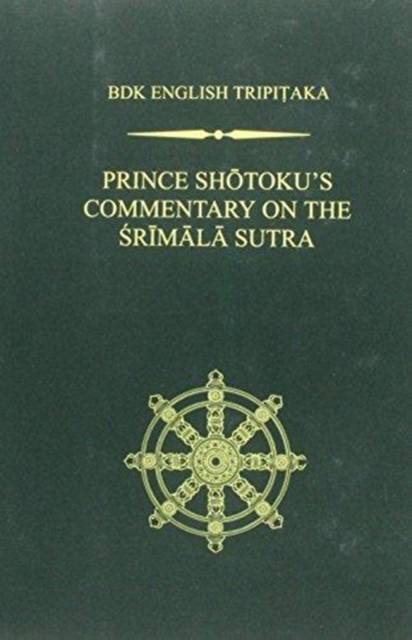
- Retrait gratuit dans votre magasin Club
- 7.000.000 titres dans notre catalogue
- Payer en toute sécurité
- Toujours un magasin près de chez vous
- Retrait gratuit dans votre magasin Club
- 7.000.0000 titres dans notre catalogue
- Payer en toute sécurité
- Toujours un magasin près de chez vous
Description
Prince Shōtoku's Commentary on the Śrīmālā Sutra is a translation of the Shōmangyō-gisho (Commentary on the Śrīmālādevīsimhanāda-sūtra), one of three Buddhist commentaries written in classical Chinese that have been attributed to Japan's Prince Shōtoku (574-622).
A master politician and shining figure in the imperial line, Prince Shōtoku played a leading role in government and with promoting diplomatic, cultural, and religious contacts with China and Korea. He is also remembered as a devout practitioner and generous patron of Buddhism who studied Buddhist doctrine under the instruction of continental tutors, and offered lectures at court on the Lotus Sutra and the Śrīmālādevī-sūtra, a key early Mahayana sutra that espouses the tathāgatagarbha, the "seed" of enlightenment said to be present in all sentient beings, and the ekayāna, or "One Vehicle." Shōtoku's lectures on the Śrīmālādevī-sūtra are believed to be the source of the Shōmangyō-gisho, a text that has had undeniable influence in both premodern and modern forms of Japanese Buddhism, and which continues to be a source of inspiration for many.
Spécifications
Parties prenantes
- Auteur(s) :
- Editeur:
Contenu
- Nombre de pages :
- 176
- Langue:
- Anglais
- Collection :
Caractéristiques
- EAN:
- 9781886439436
- Date de parution :
- 31-07-12
- Format:
- Livre relié
- Format numérique:
- Genaaid
- Dimensions :
- 152 mm x 229 mm
- Poids :
- 498 g

Les avis
Nous publions uniquement les avis qui respectent les conditions requises. Consultez nos conditions pour les avis.






